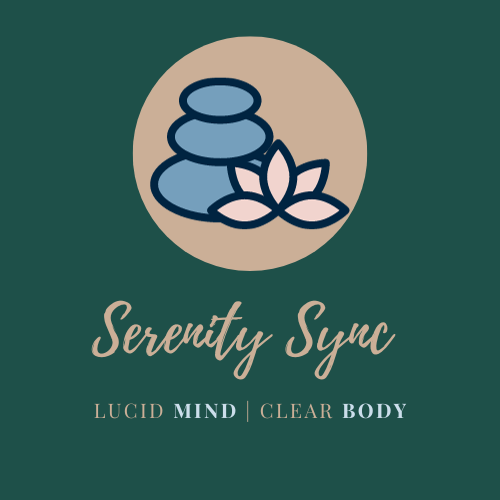In Brief
Getting a good night’s sleep is essential for our overall well-being. From boosting our mood to improving our cognitive abilities, quality sleep is the secret sauce to a healthier and happier life. In this comprehensive guide, we’ll explore the top five aspects of good sleep and delve into the secrets of achieving a restful slumber. Let’s dive into The Full Guide for Good Sleeping!
1: The Perfect Sleep Environment
Creating the
ideal sleep environment is crucial for a good night’s rest. Here are three key elements to consider:
1. Comfortable Bedding:
– Opt for breathable and hypoallergenic bedding materials for ultimate comfort.
– Keep your bed clean and fresh by washing your sheets regularly.
2. Ambient Noise and Light:
– Reduce noise disturbances by using earplugs or a white noise machine.
– Use blackout curtains or an eye mask to block out unwanted light.
– Create a soothing atmosphere with soft lighting or a dimmer switch.
3. Temperature Control:
– Maintain a cool room temperature (around 65°F or 18°C) for optimal sleep.
– Use breathable fabrics for your sleepwear and bedding.
– Consider using a fan or adjusting the thermostat to achieve the perfect temperature.
Fun Fact: Did you know that Thomas Edison, the inventor of the light bulb, used to sleep only four hours a night? Maybe he should have invested in some blackout curtains!
2: Establishing a Bedtime Routine
Establishing a consistent bedtime routine can signal your body that it’s time to wind down. Here are three key elements to consider:
1. Screens Off:
– Avoid using electronic devices at least one hour before bed.
– Blue light emitted by screens can disrupt your natural sleep-wake cycle.
– Engage in relaxing activities like reading a book or taking a warm bath instead.
2. Relaxation Techniques:
– Practice deep breathing exercises or meditation to calm your mind.
– Consider incorporating gentle stretching or yoga into your routine.
– Use aromatherapy with scents like lavender or chamomile to promote relaxation.
3. Sleep Schedule:
– Aim for a consistent sleep schedule, even on weekends.
– Wake up at the same time every day to regulate your body’s internal clock.
– Avoid napping for extended periods during the day.
Fun Fact: Did you know that Salvador Dalí used to take “micro naps”? He would hold a key in his hand and sit in a chair, so when he fell asleep, the key would drop, waking him up and inspiring his surreal artwork.
3: Healthy Sleep Habits
Building healthy sleep habits can greatly enhance your sleep quality. Here are three key elements to consider:
1. Regular Exercise:
– Engage in regular physical activity to promote deeper sleep.
– Avoid exercising too close to bedtime, as it can increase alertness.
– Find activities you enjoy, such as walking, swimming, or dancing.
2. Balanced Diet:
– Avoid heavy meals close to bedtime to prevent indigestion.
– Limit caffeine and alcohol intake, as they can disrupt sleep.
– Incorporate sleep-friendly foods like bananas, almonds, and herbal teas.
3. Stress Management:
– Practice
stress management techniques like journaling or talking to a friend.
– Create a relaxing pre-sleep ritual, such as listening to calming music.
– Consider seeking professional help if stress or
anxiety is affecting your sleep.
Fun Fact: Did you know that Leonardo da Vinci had a unique sleep pattern called “polyphasic sleep”? He would take several short naps throughout the day, which allowed him to work on his various artistic endeavors.
4: Sleep Disorders and Solutions
Sometimes, sleep disorders can hinder our ability to get quality rest. Here are three common sleep disorders and their solutions:
1. Insomnia:
– Establish a relaxing bedtime routine and sleep schedule.
– Avoid stimulating activities or substances close to bedtime.
– Consider cognitive-behavioral therapy or relaxation techniques.
2. Sleep Apnea:
– Consult a medical professional for a diagnosis and treatment options.
– Use a continuous positive airway pressure (CPAP) machine if recommended.
– Maintain a healthy weight and avoid sleeping on your back.
3. Restless Legs Syndrome (RLS):
– Discuss symptoms with a healthcare provider for a proper diagnosis.
– Incorporate regular exercise and stretching into your daily routine.
– Medications or lifestyle changes may be prescribed to alleviate symptoms.
Fun Fact: Did you know that Albert Einstein used to enjoy power napping? He believed it helped him recharge his brain and come up with groundbreaking scientific theories.
5: Creating a Sleep-Friendly Lifestyle
Adopting a sleep-friendly lifestyle can have a profound impact on your sleep quality. Here are three key elements to consider:
1. Limit Stimulants:
– Minimize exposure to stimulating activities or substances before bed.
– Create a calming evening routine to prepare your mind and body for sleep.
– Avoid using your bed for activities other than sleeping or intimacy.
2. Prioritize Self-Care:
– Engage in activities that promote relaxation and reduce stress.
– Find
hobbies or interests that bring you joy and fulfillment.
– Practice self-compassion and give yourself permission to rest and recharge.
3. Seek Professional Help:
– If your sleep troubles persist, consult a healthcare professional.
– Sleep specialists can provide a comprehensive assessment and personalized solutions.
– Don’t be afraid to ask for help – better sleep is within reach!
Fun Fact: Did you know that Winston Churchill was known for taking regular afternoon naps during World War II? He believed it helped him stay sharp and make better decisions.
Conclusion:
With these comprehensive strategies, you’ll be well on your way to achieving the restful slumber you deserve. Remember, good sleep is not a luxury; it’s a necessity for a healthier and happier life. So, go forth and embrace the power of a good night’s sleep!



2 thoughts on “The Full Guide for Good Sleeping”